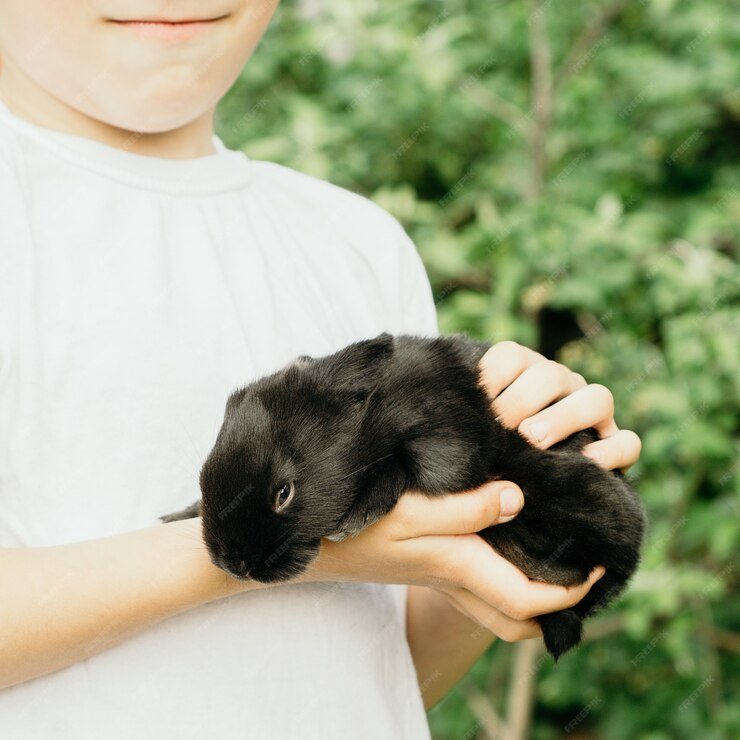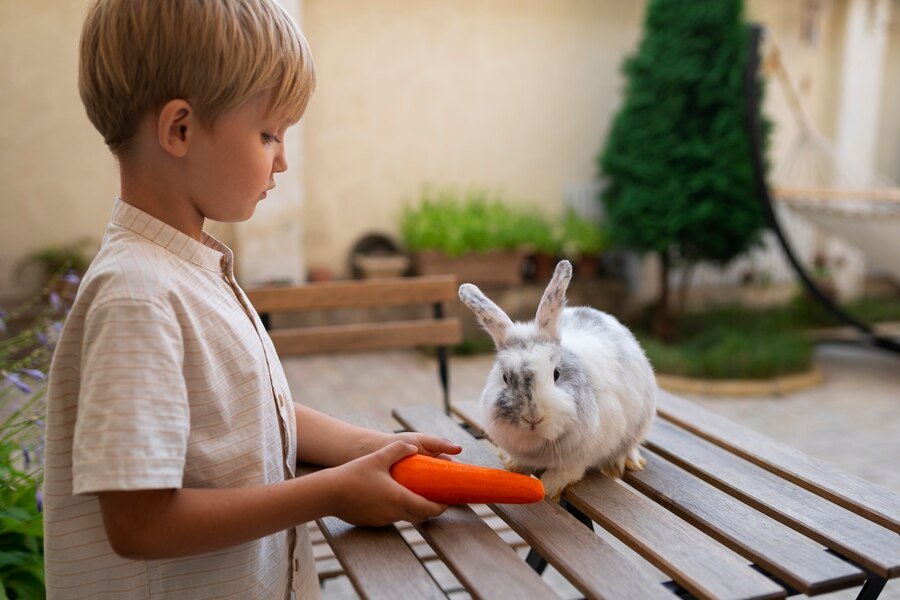Few things are as adorable as a baby rabbit, or kit. These tiny bundles of joy captivate us with their soft fur, curious nature, and boundless energy. However, caring for a baby rabbit requires proper knowledge to ensure they grow healthy and happy. Whether you’ve adopted a domestic rabbit or encountered a wild baby rabbit, this guide will walk you through everything you need to know.
What is a Baby Rabbit Called?
A baby rabbit is called a kit or kitten. Kits are born blind, hairless, and completely dependent on their mothers for the first few weeks of life. A litter of baby rabbits can range from 2 to 12 kits, depending on the breed.
The First Days of a Kit’s Life
Baby rabbits are incredibly fragile in their early days. Here’s what to expect:
- Birth and Nesting:
- Kits are born in nests lined with their mother’s fur. These nests keep them warm and protected.
- Blind and Hairless:
For the first 10 days, kits rely entirely on their mother as their eyes remain closed, and they lack fur. - Rapid Growth:
By the second week, kits start developing fur and opening their eyes, becoming more active.
Domestic vs Wild Baby Rabbits
Domestic Kits
Domestic baby rabbits are bred in controlled environments. They are usually handled by humans from a young age, making them more sociable and reliant on caretakers.
Wild Kits
Wild baby rabbits are born in shallow burrows called forms. If you find a wild kit, it’s crucial not to interfere unless absolutely necessary, as the mother usually returns to feed them once or twice daily.
Caring for a Domestic Baby Rabbit
1. Feeding
Newborn kits require their mother’s milk for the first 3-4 weeks. If the mother is unavailable, a kitten milk replacer is the best alternative.
- Frequency: Feed orphaned kits twice a day.
- Method: Use a small syringe or dropper to administer the milk.
2. Housing
Provide a clean, safe, and warm environment for the baby rabbits. Use:
- A soft bedding of hay or straw.
- A quiet, draft-free space.
3. Temperature Control
Kits cannot regulate their body temperature, so ensure they’re kept warm, especially if they’ve been separated from their mother.
Introducing Solid Food
By 3 weeks of age, kits begin nibbling on hay and pellets. Gradually introduce:
- Fresh alfalfa hay.
- High-quality rabbit pellets.
- Limited leafy greens once they reach 8 weeks.
Socializing with Baby Rabbits
Handling baby rabbits from a young age makes them more sociable and comfortable around humans. Always:
- Be gentle when picking them up.
- Support their entire body, including their hind legs, to prevent injury.
Common Health Concerns in Baby Rabbits
1. Digestive Issues
Kits have delicate digestive systems. Always monitor their stool for signs of diarrhea, which can be fatal if untreated.
2. Parasites
Check for mites or fleas, especially if they’ve been outdoors.
3. Respiratory Problems
Keep them in a clean, dust-free environment to avoid respiratory infections.
How to Help Wild Baby Rabbits
If you come across a wild kit, it’s best to leave it alone unless it’s injured or orphaned. To ensure its survival:
- Observe from a distance to see if the mother returns.
- If intervention is necessary, contact a local wildlife rehabilitator.
Fun Facts About Baby Rabbits
- Kits grow rapidly and double their birth weight within a week.
- Their teeth start growing almost immediately after birth and never stop growing.
- Rabbits can recognize their mother and siblings by scent.
When to Separate Kits from Their Mother
At around 8 weeks, baby rabbits can be weaned from their mother and adopted into new homes. Ensure that they are fully eating solid food and are independent before separation.
Building a Strong Bond with Your Baby Rabbit

Spending quality time with your rabbit builds trust and affection. Activities include:
- Gently stroking their fur.
- Offering healthy treats like small pieces of carrot or apple.
- Allowing supervised playtime in a safe, enclosed area.
Conclusion
Baby rabbits are a joy to care for but require attention and proper handling to thrive. Whether you’re raising a domestic kit or helping a wild rabbit, understanding their needs is key to ensuring they live a happy, healthy life.
FAQs
How long does a baby rabbit stay with its mother?
Kits stay with their mother for 8 weeks before they’re weaned.
Can I feed cow’s milk to a baby rabbit?
No, cow’s milk is unsuitable for rabbits. Use a kitten milk replacer instead.
How can I tell if a baby rabbit is orphaned?
If the nest is undisturbed and the kits appear plump, the mother is likely caring for them.
When can I introduce greens to a baby rabbit’s diet?
You can introduce small amounts of greens after 8 weeks of age.
Is it okay to handle wild baby rabbits?
Only handle wild kits if absolutely necessary, as excessive handling can stress them.











